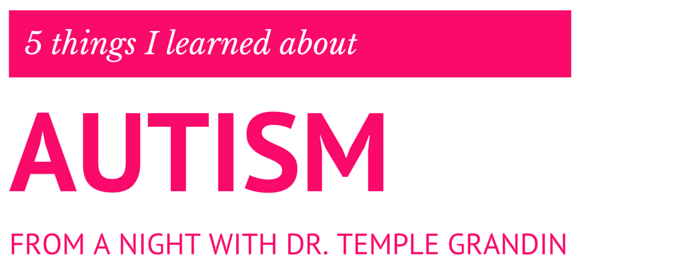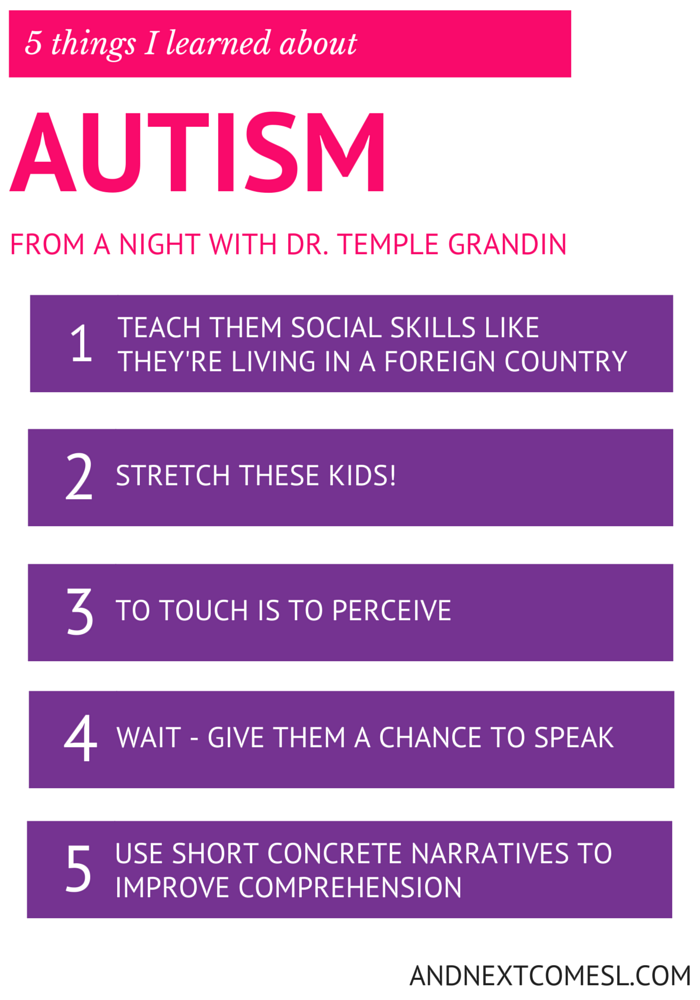Anyway, as an autism mom, Dr. Grandin was a delight and an inspiration to listen to. I found myself nodding along to a lot of things she said and I thought I would share some of the most inspiring points from her discussion. I've also included a free printable about these points. The link to download the printable is at the end of the post.
This post contains affiliate links for your convenience.
1. Teach Social Skills Like They're Living in a Foreign Country
Social skills are something kids with autism struggle with. My son certainly does. Dr. Grandin emphasized that we have to teach these kids social skills as if they were learning the rules and norms for a foreign country. We have to physically teach them these social skills.
2. Stretch These Kids!
We're not talking about doing stretches to warm up your body for exercising here. Instead, Dr. Grandin stressed the importance of stretching the kids to do things outside of their comfort zone. Pushing them to try different things. Dr. Grandin shared a story about how her mother was going to take her to her aunt's ranch. Dr. Grandin didn't want to go. So her mother gave her a choice: go for one week or go for the entire summer. Not going was not an option.
This concept of stretching is something my husband and I discuss a lot. We love to push J to try new things and have successfully pushed him outside of his comfort zone before (see here for an example). I have to admit though, that before J received the hyperlexia diagnosis, we struggled finding appropriate ways to stretch him. Now I know to use his hyperlexia to our advantage and help us guide him to try new things.
3. To Touch is to Perceive
Dr. Grandin also emphasized hands on sensory experiences for kids. I could feel her passion about this topic when she spoke and, obviously, sensory play is something I am passionate about too. Kids need to touch, feel, and experience objects in order to truly understand what they are.
4. Wait! Give Them a Chance to Speak
"Wait!" Dr. Grandin shouted. She said that waiting is one of the best things you can do to help your child learn to speak. You have to give the kids a chance to express themselves.
I like to think that I already do well with this point. I always give J an opportunity to answer a question. I wait for him to say something, even if it's not an appropriate response, because it is giving him the confidence he needs to learn how to have conversations. And it shows that I do value his input. And it shows that I will wait for him to try expressing himself on his own.
5. Use Short Concrete Narratives to Improve Comprehension in Kids with Hyperlexia
After the presentation, I had the chance to meet Dr. Grandin. I waited patiently to buy a copy of one of her books and I waited patiently again to get it signed by her. But what I was really hoping for was a chance to pick her brain, no matter how briefly, about hyperlexia. A few times throughout her presentation, Dr. Grandin made references to kids with dyslexia. References to dyslexia always seem to agitate me. Probably because in my head I am shouting, "And what about hyperlexia?!" Anyway, I was really hoping she could offer some insight into working with hyperlexic kids.
So I asked her, "What do you know about hyperlexia?" Dr. Grandin spouted off a very precise, textbook definition of hyperlexia. Then she went on to explain the importance of short, concrete narratives for these kids. She told me to avoid the abstract questions and focus on asking concrete and specific questions to help with comprehension. It may have only been a 1-2 minute discussion, but it was enough information for me to feel confident in raising a child with hyperlexia. She was truly inspiring! And so incredibly smart.
Don't forget that you can grab a copy of this free printable!
Thank you to my friend's husband who snapped the photo below. I had no idea that he was taking a picture, but I am so happy that he did!
And look! I got a personalized autograph from Dr. Grandin in a copy of her book The Autistic Brain: Helping Different Kinds of Minds Succeed.



